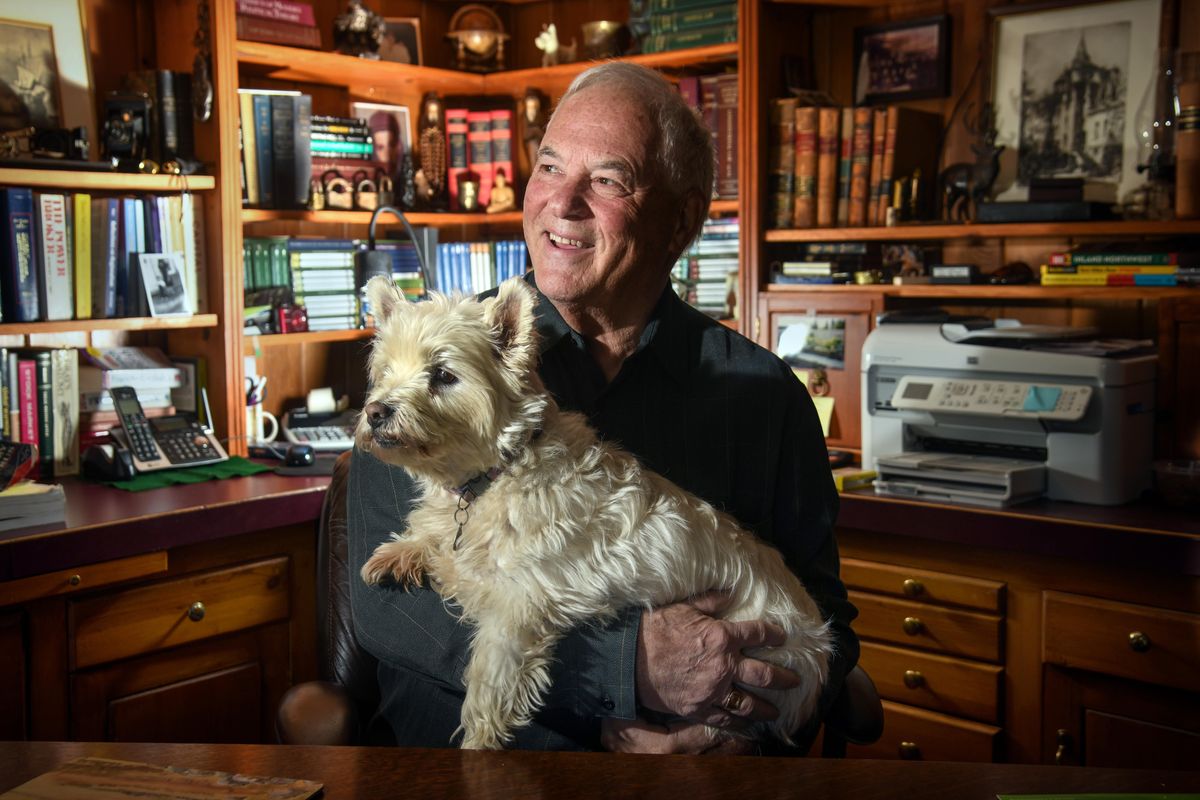West Central hero: Spokane looks for way to honor former community center director

There’s a movement afoot to honor former West Central Community Center director Don Higgins as he and his wife, Janelle Higgins, deal with his Alzheimer’s disease diagnosis.
Representatives from the city of Spokane and the community center gathered recently to see what they could do to honor Higgins while his health still permits his participation.
“Everyone should know his story,” said city Councilwoman Karen Stratton. “What we want to do is find a way to honor Don and his work in West Central. Hopefully we can make this cool and special.”
Higgins was the first director of the West Central Community Center, starting work a few months before it opened in 1980. Prior to that Higgins was working for Catholic Charities when he heard about the new program that needed someone to run it.
“All the sudden I’m in charge,” he said.
The community center wasn’t funded by the city and started small. It had a gym, offered Head Start and had a program for developmentally disabled children. “The recreation program was a big part,” Higgins said. “I loved it.”
While Higgins grew up on the South Hill, his mother was born in a home near the Spokane County Courthouse and he was pleased to work in the community where she grew up. “It was the poorest area in the city of Spokane,” he said. “I had roots here.”
The center put on plays, hosted a food bank and served the community in any way it could. “It was constant growth,” he said. “We were inventing, so to speak, various activities that the neighborhood needed and wanted.”
Higgins didn’t just run the center, he made it his mission to help the neighborhood as a whole. One of his first efforts was Project Pride, a plan to clean up the trash in the neighborhood. After two neighborhood girls, Nicki Wood and Rebecca West, were kidnapped in 1991 he pushed to create COPS West, a neighborhood police substation that was the start of the COPS program in Spokane.
At the time, the neighborhood, known as Felony Flats, was poorly served by the police department. “There was nothing happening,” he said.
But Higgins said he can’t take the credit for all the work the community center did and instead pointed to the innovation of his staff. “I had an incredible team of people,” he said. “I couldn’t have done that by myself.”
Higgins retired from the community center in 2011. Even then it was apparent something was wrong, but Higgins hadn’t yet been diagnosed with Alzheimer’s. He assumed he was under too much stress.
“I reached the point where I knew I couldn’t do this anymore,” he said. “The Alzheimer’s was beginning to have an early onset, but I didn’t know that.”
He taught at several local colleges for a while, including Gonzaga University and Eastern Washington University. He and his wife Janelle wanted to travel, and that’s when it became clear to them both that something was wrong. Higgins would often forget his luggage and started forgetting computer passwords.
Finally, in 2014, scans performed at the University of Washington confirmed that he had Alzheimer’s. “It was a shock,” he said. “I couldn’t believe it.”
It was a diagnosis that shook the couple to their core. “I took you to the nearest bar and bought you a shot of whiskey,” his wife recalled.
She promised him she’d stand by him and she’s become his caregiver. He still remembers the past fairly well, though sometimes he turns to his wife for help with a name or getting the sequence of past events right. “It’s the current events he can’t keep track of,” she said. “I can see him slipping.”
She said his memory loss is slow and gradual. “It’s a one day at a time thing,” she said. “You can’t let it capture your life.”
Now 72, Higgins still enjoys doing yard work and their West Highland Terrier Duffy is his constant companion. He’s always done woodwork and his house is full of shelves and cabinets that he built. He recently finished refurbishing a wooden table that belonged to his mother and has wood ready to go in his shop for his next project. “I love wood,” he said.
His wife has been hoping that something will be done to recognize her husband’s decades of work in West Central. “I am the one person who knows how much heart and soul he put into his job, sometimes at the expense of our relationship,” she said. “He’s done so much for so many.”
Stratton and others agree with her. At their recent meeting they discussed several possibilities and how to raise money to pay for any proposed memorial. One idea that seemed to float to the top was a bench at a scenic Centennial Trail overlook just east of Sandifur Bridge. The proposal would have to be approved by the Spokane Parks Board.
“We can pull this together,” Stratton said. “Let us be creative and see what we can do.”
Current community center director Kim Ferraro took over after Higgins left. “He was a great resource for me,” she said. “We met often. I had huge shoes to fill when I got here.”
Higgins left a great legacy at the center and Ferraro said she’s pleased to be involved in the effort to create a memorial in honor of his work.
“He’s so congenial and so sweet and so passionate about this community,” he said. “He worked so hard for this center and the clients we serve.”